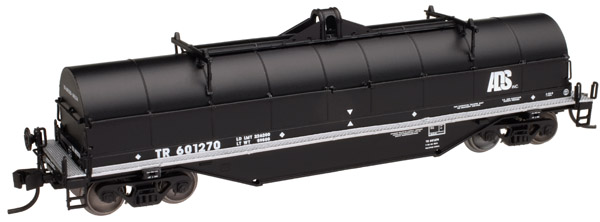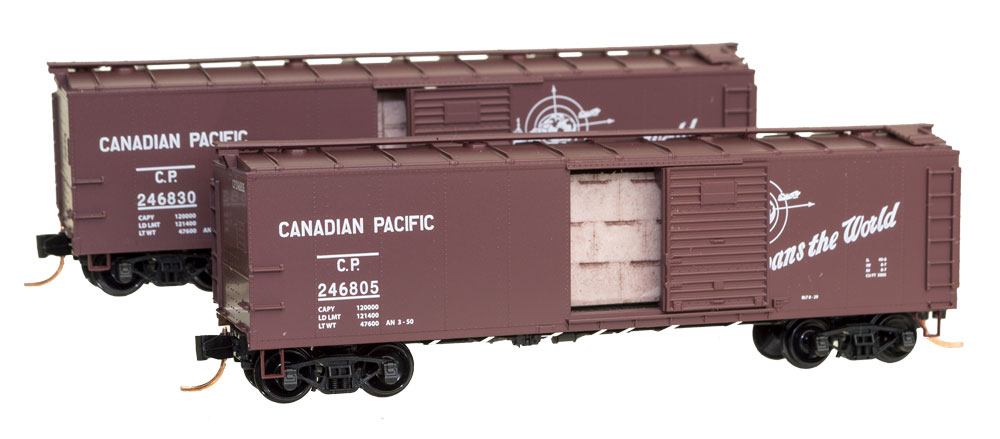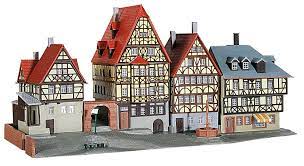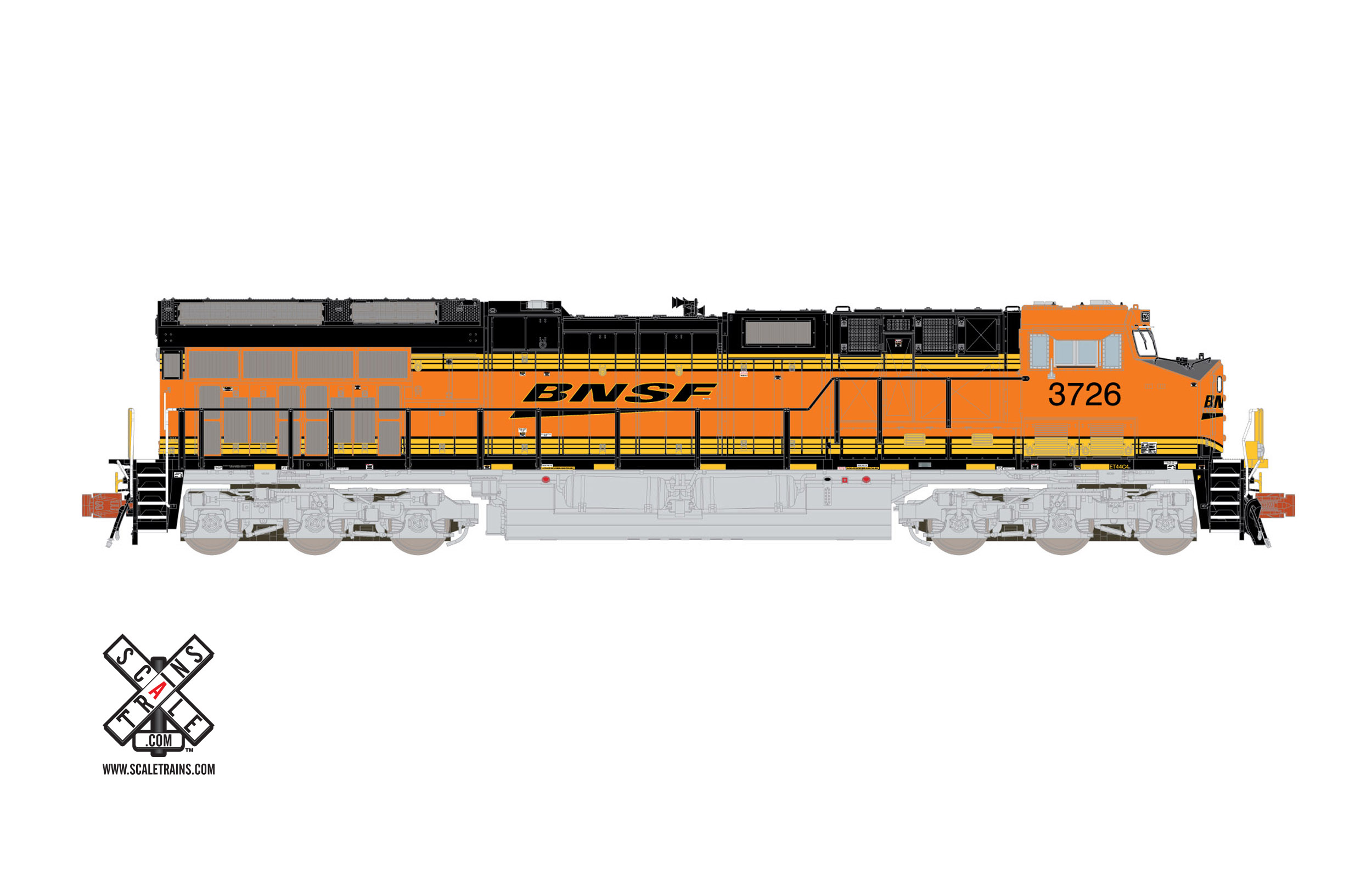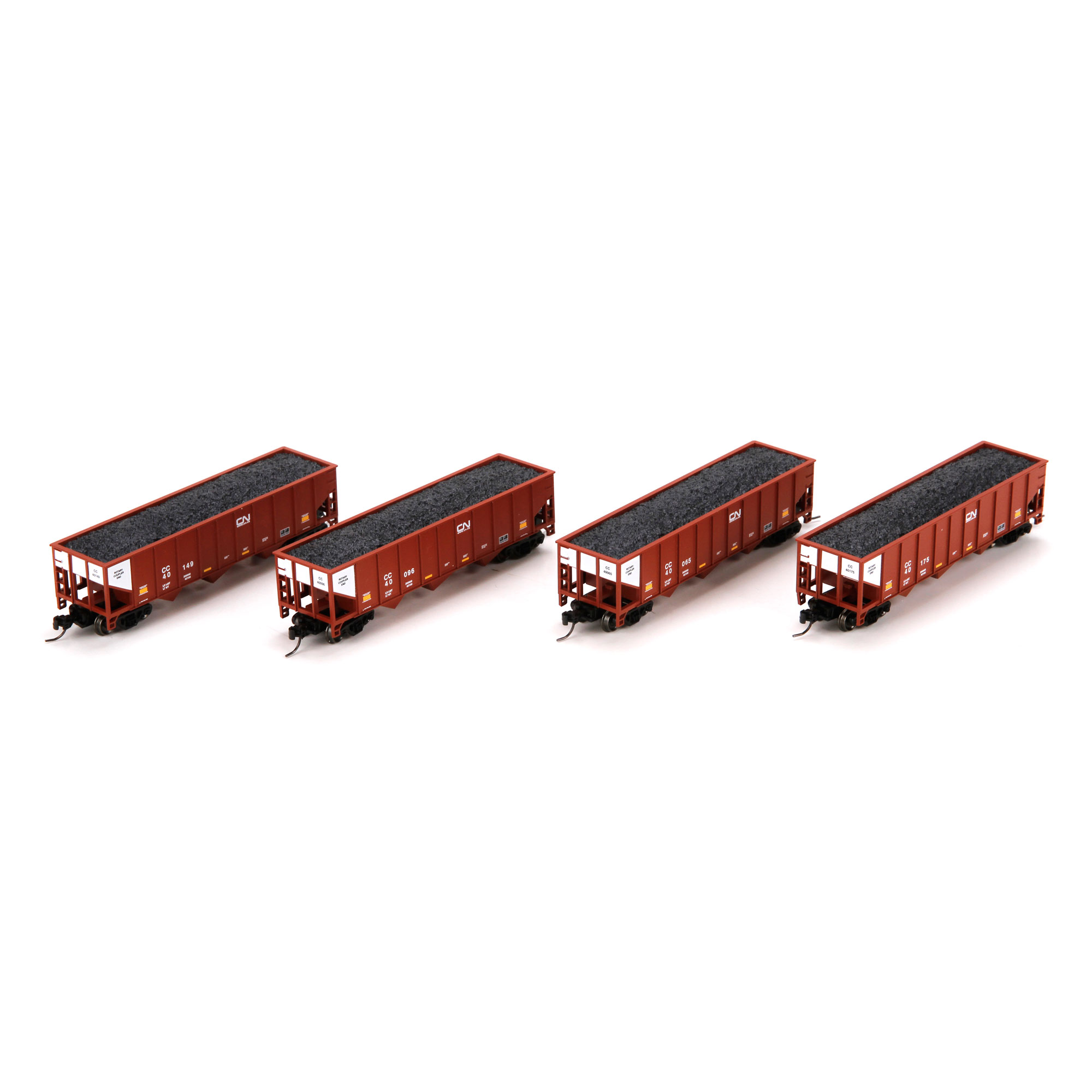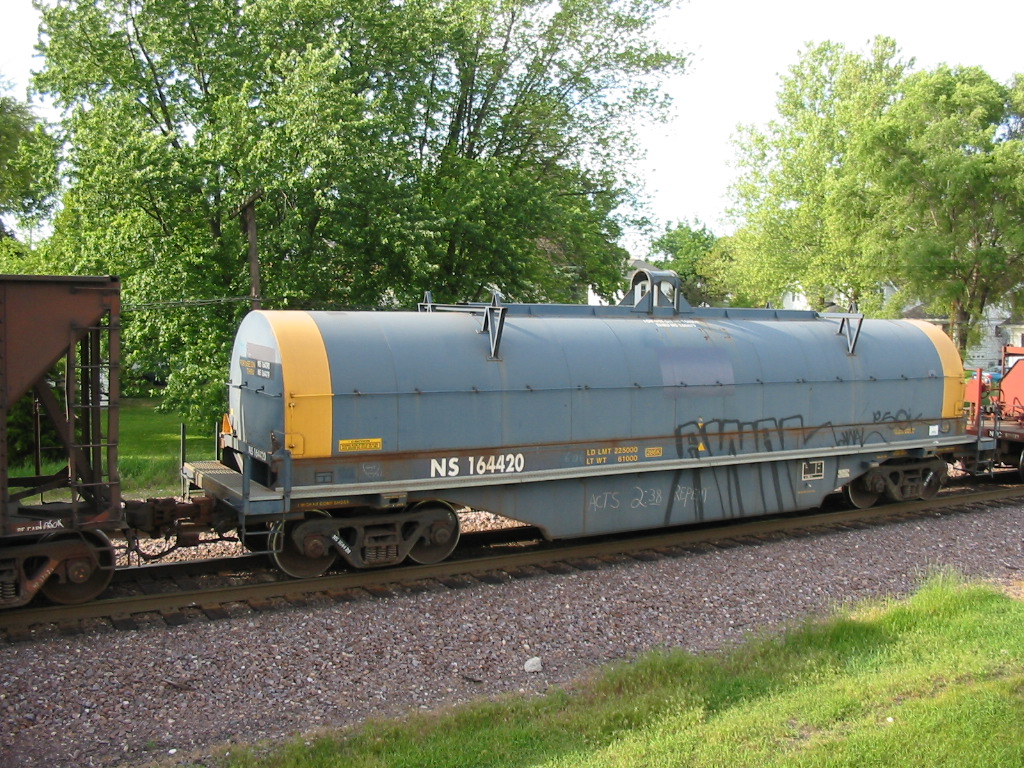Model Information: This model was introduced by Atlas in 2012 with 5 road names, 6 paint schemes and an undecorated model. They feature
prototypical painting and lettering,
see-through walks,
removable hood, and
inside floor detail.
Prototype History: The increased volume of coiled steel transportation gave rise to a new purpose-built freight car. Previously rolls of coiled-steel had generally traveled in specially equipped gondola cars. In the 1960s a lighter type of car emerged specifically for hauling coils of steel in an integral trough. The car type gained popularity and eventually over 17,000 cars were built. One common model was the 42 foot design with a distinctive fishbelly side sill.
The Greenbrier 42’ gondola car is specifically designed for transporting steel coils. The inside trough and top cords ensure the steel is secure during transit. Our steel coil gondola design is capable of shipping coils ranging from 30” to 84” in diameter. They also provide a custom fit, reliable cover to protect your steel until it is unloaded at its destination.
The Greenbrier 42’ gondola car is specifically designed for transporting steel coils. The inside trough and top cords ensure the steel is secure during transit. Our steel coil gondola design is capable of shipping coils ranging from 30” to 84” in diameter. They also provide a custom fit, reliable cover to protect your steel until it is unloaded at its destination.
Road Name History:  The TR was established in 2005 when the Genesee & Wyoming shortline group purchased the Marinette Tomahawk & Western and renamed it. The line runs six miles between Wisconsin Dam and Tomahawk, Wisconsin. The largest customer is a pulpboard mill in Wisconsin Dam. The mill receives chemicals, coal, scrap paper, chips and pulp and ships pulpboard. A pair of SW1500’s typically switch 22 cars on an average day.
The TR was established in 2005 when the Genesee & Wyoming shortline group purchased the Marinette Tomahawk & Western and renamed it. The line runs six miles between Wisconsin Dam and Tomahawk, Wisconsin. The largest customer is a pulpboard mill in Wisconsin Dam. The mill receives chemicals, coal, scrap paper, chips and pulp and ships pulpboard. A pair of SW1500’s typically switch 22 cars on an average day.

Brand/Importer Information: In 1924 Stephan Schaffan, Sr. founded the Atlas Tool Company in Newark, New Jersey. In 1933 his son, Stephan Schaffan, Jr., came to work for his father at the age of sixteen. Steve Jr. built model airplanes as a hobby and frequented a local hobby shop. Being an enterprising young man, he would often ask the owner if there was anything he could do to earn some extra spending money. Tired of listening to his requests, the hobby-store owner threw some model railroad track parts his way and said, "Here, see if you can improve on this".
In those days, railroad modelers had to assemble and build everything from scratch. Steve Jr. created a "switch kit" which sold so well, that the entire family worked on them in the basement at night, while doing business as usual in the machine shop during the day.
Subsequently, Steve Jr. engineered the stapling of rail to fiber track, along with inventing the first practical rail joiner and pre-assembled turnouts and flexible track. All of these products, and more, helped to popularize model railroading and assisted in the creation of a mass-market hobby. The budding entrepreneur quickly outgrew the limitations of a basement and small garage operation. Realizing they could actually make a living selling track and related products, Steve and his father had the first factory built in Hillside, New Jersey at 413 Florence Avenue in 1947. On September 30, 1949, the Atlas Tool Company was officially incorporated as a New Jersey company.
In 1985, Steve was honored posthumously for his inventions by the Model Railroad Industry Association and was inducted into the Model Railroad Industry Hall of Fame in Baltimore, Maryland. In addition, Steve was nominated and entered into the National Model Railroad Association Pioneers of Model Railroading in 1995.
In the early 1990s, the Atlas Tool Company changed its name to Atlas Model Railroad Company, Inc.
In those days, railroad modelers had to assemble and build everything from scratch. Steve Jr. created a "switch kit" which sold so well, that the entire family worked on them in the basement at night, while doing business as usual in the machine shop during the day.
Subsequently, Steve Jr. engineered the stapling of rail to fiber track, along with inventing the first practical rail joiner and pre-assembled turnouts and flexible track. All of these products, and more, helped to popularize model railroading and assisted in the creation of a mass-market hobby. The budding entrepreneur quickly outgrew the limitations of a basement and small garage operation. Realizing they could actually make a living selling track and related products, Steve and his father had the first factory built in Hillside, New Jersey at 413 Florence Avenue in 1947. On September 30, 1949, the Atlas Tool Company was officially incorporated as a New Jersey company.
In 1985, Steve was honored posthumously for his inventions by the Model Railroad Industry Association and was inducted into the Model Railroad Industry Hall of Fame in Baltimore, Maryland. In addition, Steve was nominated and entered into the National Model Railroad Association Pioneers of Model Railroading in 1995.
In the early 1990s, the Atlas Tool Company changed its name to Atlas Model Railroad Company, Inc.
Item created by: gdm on 2015-08-31 16:44:27. Last edited by Lethe on 2020-05-07 00:00:00
If you see errors or missing data in this entry, please feel free to log in and edit it. Anyone with a Gmail account can log in instantly.
If you see errors or missing data in this entry, please feel free to log in and edit it. Anyone with a Gmail account can log in instantly.


